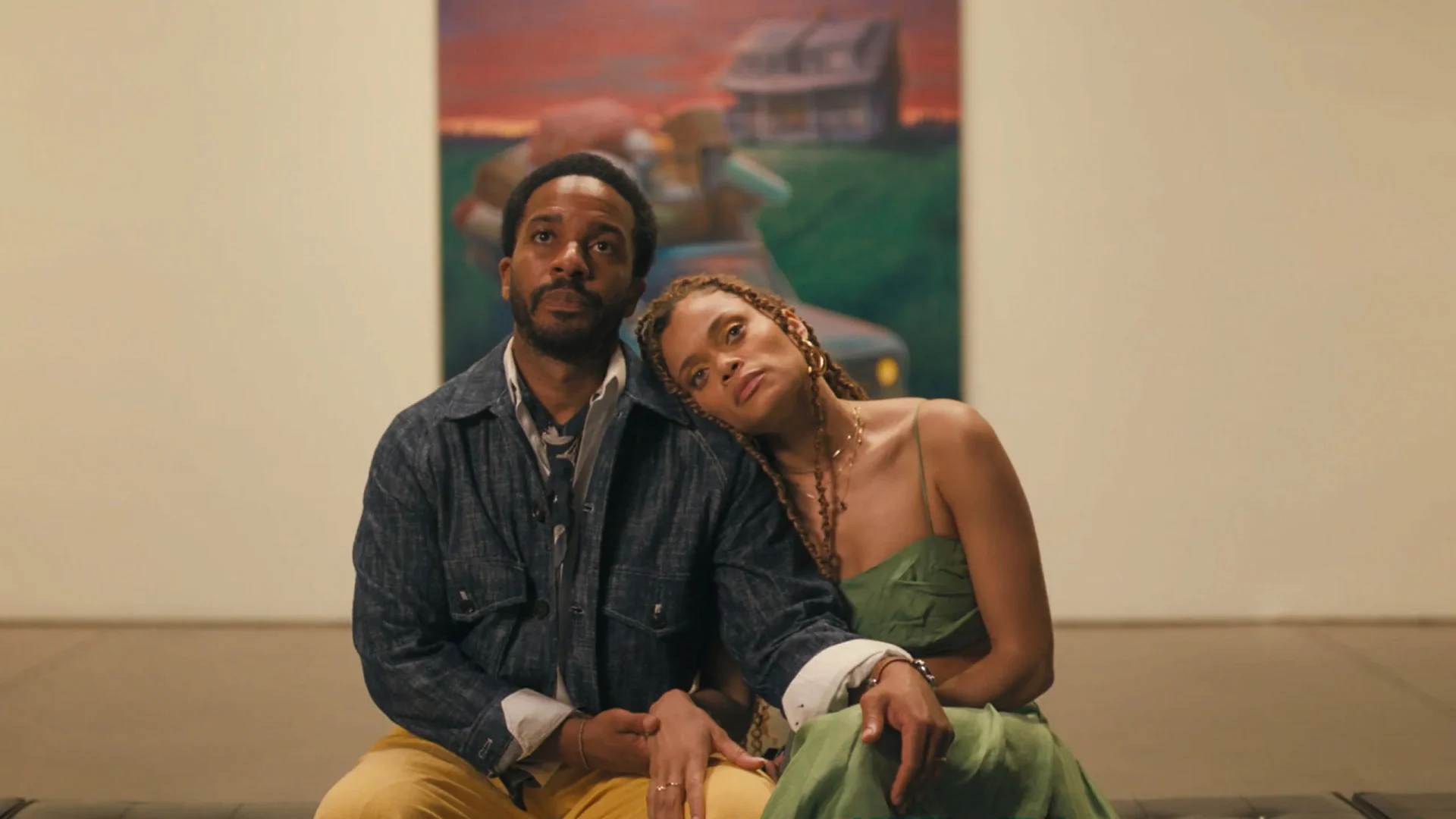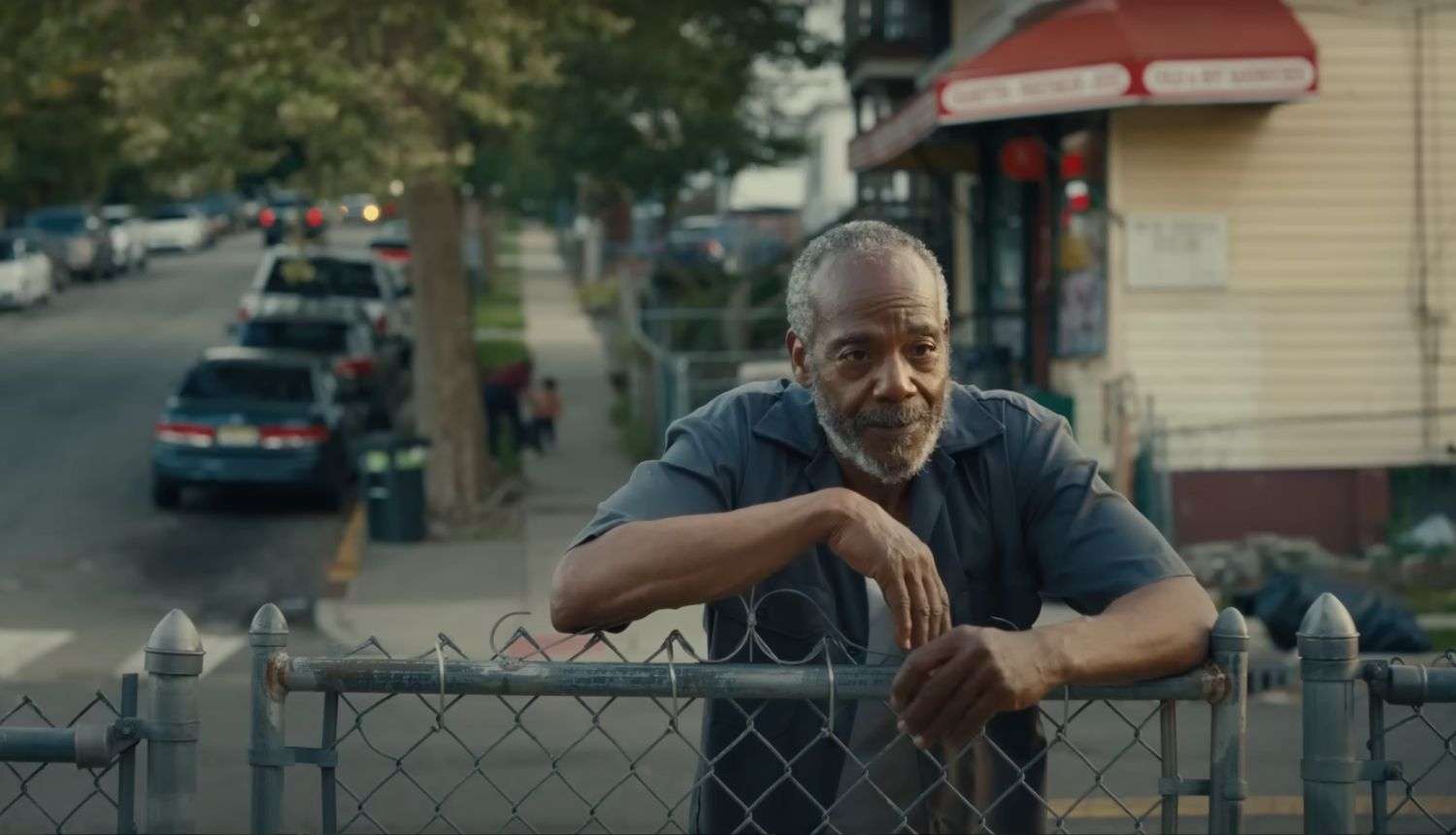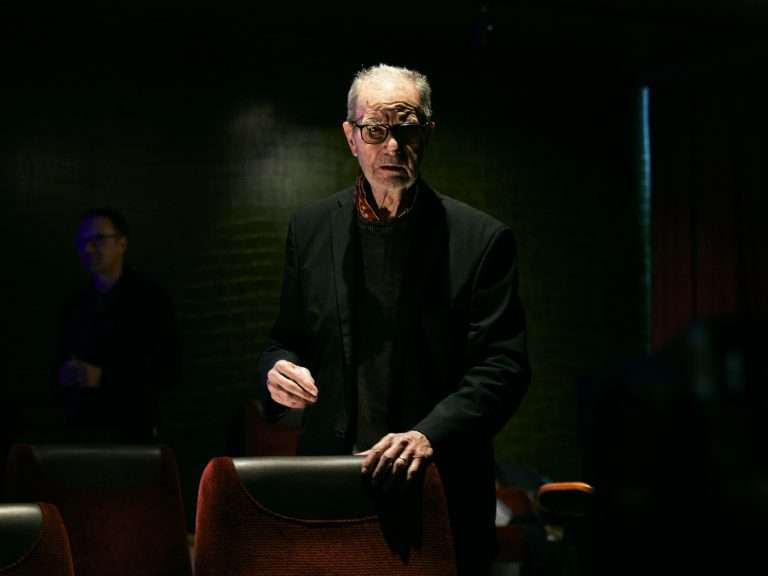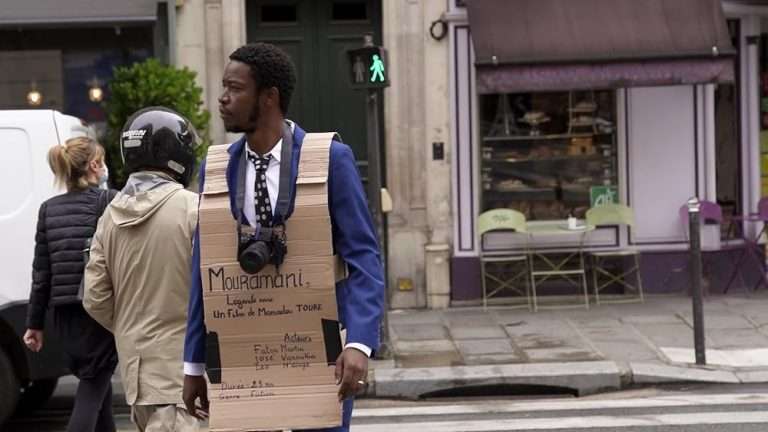There’s a quiet strength to “Exhibiting Forgiveness” in what is left unsaid. It would have been easy to broadly categorize writer/director Titus Kaphar’s directorial debut with several other “festival darlings” in which a promising young storyteller tries to examine their own grief, guilt, or trauma through the means of a “slice of life” story. While many of these indie films are quite charming in their personability, they generally lack the formal excellence that is needed to be seen as truly major works. Kaphar quickly proves himself to be an outlier with “Exhibiting Forgiveness,” which is in no small part due to the fact that the film is about the importance of utilizing visual language.
At the center of “Exhibiting Forgiveness” is a career-best performance from Andre Holland as Tarrell, an acclaimed painter fresh off the success of a recent showcase. Tarrell is undeniably dedicated to his craft, but his persistence does occasionally come as a barrier within his marriage to his wife Aisha (Andra Day), who has forsaken her own artistic endeavors to focus on raising their young son, Jermaine (Daniel Michael Barriere).
However, Tarrell’s desires to balance his personal and professional responsibilities come under threat upon the reappearance of his own father, La’Ron (John Earl Jelks), who has been an absent force in his life. Despite attempts by his mother, Joyce (Aunjanue Ellis-Taylor), Tarrell does not feel that he owes La’Ron any opportunity to explain himself, as there would be no purpose in giving grace to someone he feels is incapable of changing.
“Exhibiting Forgiveness” does have the powerful, emotional breakdown moments that one would have expected based on the premise alone, but it is often at its most effective when leading the audience to draw their own conclusion. Even when faced with serious pressures at work to appease wealthy vendors, Tarrell always makes it a priority to ensure that he is there to cook Jermaine breakfast on the weekends. It’s not suggested that fatherhood is a burden to him, but that he’s been so wounded by La’Ron’s incompetence that he has become driven to go above and beyond to ensure Jermaine can reflect positively on the man who raised him.

The interactions between Tarrell and La’Ron are deeply affecting because Kaphar makes it clear that their current feud is simply litigating old wounds. Arguments about the merits of forgiveness have been waged before, and Tarrell has taken it upon himself to be the “better man” and simply move on. A few key flashbacks featuring a remarkable breakout performance by Ian Foreman as a younger version of Tarrell do provide some important contextual information on why his relationship with La’Ron was filled with so much friction.
Using flashbacks could feel like a crutch, but Kaphar doesn’t insert them for the sake of spoon-feeding the viewer’s exposition. It’s critical to understand why Tarrell feels that his father is not deserving of any more leeway, and why the very idea of his rehabilitation offends him. If these moments were not included, Holland’s performance could have felt far too cold and aggressive for what “Exhibiting Forgiveness” is going for.
The notion of an obsessive artist too invested in his own work has been told countless times, but “Exhibiting Forgiveness” does not assign any extreme ego to Tarrell. There’s certainly a meticulous nature to his creative process, which is detailed beautifully by Lachlan Milne, the acclaimed cinematographer behind “Minari” and “Hunt for the Wilderpeople.” Each painting that Tarrell constructs is meant to reflect a deeply personal statement that he struggles to define when questioned by his peers and employers; this may have been a more than evident self-insert on Kaphar’s part, as the film itself seems more intended on offering a “slice of life” story than necessarily making a firm statement.
Holland’s performance is impressive because it is reserved; “Exhibiting Forgiveness” is about Tarrell’s reflections, but he is not the exclusive perspective that the film highlights. While many supporting performances pop, it is perhaps Ellis-Taylor’s that has the most to say about the capacity for grief that is allowed from disenfranchised people. As a black mother who was saddled with the majority of the child-rearing responsibilities in her household, Joyce was never given the room to be reflective or angry about her circumstances.

The warmth of spirit that Joyce has speaks to her strength, as she is willing to look past the fundamental disadvantages that she is faced with and still see the good in people. Ellis-Taylor has been earmarked for awards consideration this year for her powerful performance in “Nickel Boys,” but hopefully open-minded voters will consider the merits of her equally impressive work in “Exhibiting Forgiveness.”
The strength of any film about artistry is whether or not the filmmaker can make the art itself compelling in its own right; in the case of “Exhibiting Forgiveness,” the abstract, yet truthful perspective that Tarrell brings to his paintings reflects the stylistic impulses that define Kaphar’s intentions. There are a few instances in which “Exhibiting Forgiveness” puts perhaps too fine a line on the comparison between the two, but for a film that is so wholesome in its approach, a degree of poetic correlation is by no means a sin. It helps that the film is meticulously paced, as the 117-minute running time rarely feels like it is overindulging in any of the more fraught emotional conflicts.
“Exhibiting Forgiveness” is a quiet, patient film that manages to be both universal and highly specific. There are certainly elements of intersectionality focused on the dynamics between black fathers and sons that were most certainly informed by Kaphar’s own experiences, but the overriding story of fear, faith, and faith may find resonance with audiences of many different backgrounds. “Exhibiting Forgiveness” seems to indicate that Kaphar is a major filmmaker in the works, and his later work may grow even more ambitious and nuanced. That being said, a director has only one chance to prove themselves with a first feature, and “Exhibiting Forgiveness” is about as strong of a thesis statement as could be.





![Plan B [2021]: ‘HULU’ Review – Been There, Done That](https://79468c92.delivery.rocketcdn.me/wp-content/uploads/2021/05/Plan-B-1-highonfilms-768x512.jpg)

![The Father’s Shadow [2019]: ‘Fantasia’ Review – The Horrors of Unresolved Grief](https://79468c92.delivery.rocketcdn.me/wp-content/uploads/2019/07/The-Fathers-Shadow-highonfilms-768x509.jpg)
![Badlands [1973]: An Achingly Beautiful, Instant Classic Debut](https://79468c92.delivery.rocketcdn.me/wp-content/uploads/2017/04/04-kit-and-holly-768x432.png)